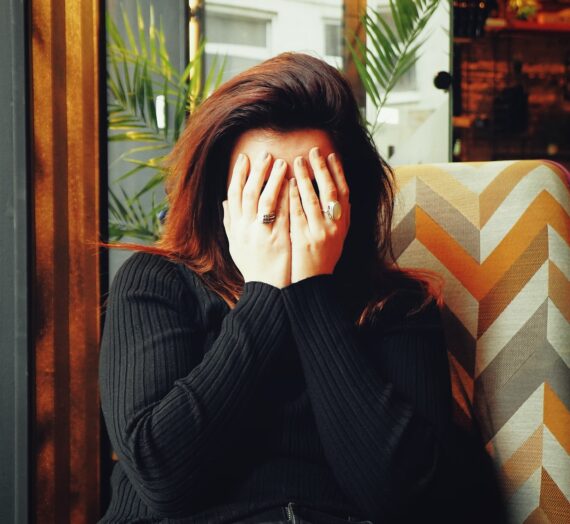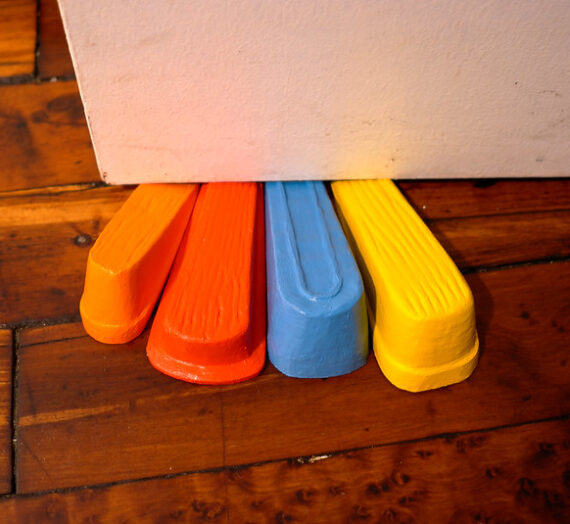The pandemic that interrupted attendance for all members forced an unprecedented change in our personal church habits and activity. It blurred the distinction between work, education, church, and family lives. Many saw the shift to “home-based, church-supported” as a prophetic precursor to this change, and leaned into the opportunity presented by it. For some normal attendance has resumed, while others are choosing to reengage differently in church activity going forward. For this episode, Cynthia and Susan asked women how the pandemic affected their personal faith journey and relationship with the Church. What changed? What didn’t? And what opportunities for personal and institutional growth might we find by examining our individual and collective experience?

Notes & Quotes:
Are You Sleeping Through the Restoration?, by Dieter F. Uchtdorf, April 2014
Elder Bednar says pandemic is a “wake-up call” for religious freedom, by Kaylee Esplin, BYU University Communications News, June 2020
God Will Do Something Unimaginable, by Dieter F. Uchtdorf, October 2020
Navigating the Mysteries, by Martin Shaw, Emergence Magazine, May 2022
“In reality, the Restoration is an ongoing process; we are living in it right now. It includes ‘all that God has revealed, all that He does now reveal,’ and the ‘many great and important things’ that ‘He will yet reveal.’” — Dieter F. Uchtdorf
“This is the Lord’s work. He invites us to find His ways of doing it, and they may differ from our past experiences. This happened to Simon Peter and other disciples who went fishing on the Sea of Tiberias. ‘That night they caught nothing.’ But when the morning [came], Jesus stood on the shore. …’And he said unto them, Cast the net on the [other] side of the ship, and ye shall find.’ They did cast their nets on the other side and “were not able to draw it for the multitude of fishes.” — Dieter F. Uchtdorf
“I’m not interested in what worked as a storyteller two years ago, only what is being disclosed now. Not all stories will be returning, and some in a new shape. I don’t know what will happen next.
“So as I approach the mystery of telling these stories again, the uncertainty of working into my mythmaking, I wonder if we could do something similar with our own narratives. What are we bored by, what needs to stay buried? What deserves to be re-imagined, re-seeded, re-beheld?
“That’s where the joyful work is. I’m handing you a spade.
“This is a moment of unexpected possibility.” — Martin Shaw




Too Introverted to give it
I love you guys and I love your podcast so much. You’ve offered me so many wonderful silver linings that have helped me refocus on the good parts of my membership in the Church instead of only the difficult parts. My youngest kids love a cartoon where one of the characters says, “If you look for the light, you can often find it. If you look for the dark, it is all you will ever see.” As someone who was staring at a lot of dark for a while, hearing you discuss issues I had never even heard discussed, and offer ideas and ways forward that I had barely begun to imagine allowed me to start looking for a little light again. Thank you.
I did want to offer up an alternative interpretation of what Elder Bednar said. Though I obviously have no greater insight into his intentions than you do, that quote came from a speech he gave at the law school. When read in its entirety, it seemed to me that he was referring to the ability to administer ordinances, not the ability to gather in large groups. During the pandemic, there were individuals unable to be baptized, unable to be endowed, unable to be sealed, because religious services were not designated as ‘essential.’ There were other services that were allowed to continue with limited numbers and enforced safety precautions (services related to food, medical care, etc.), but religious services (read that as specific ordinances that could be conducted with limited sizes and safety precautions) were excluded due to their legal classification as non-essential. This did vary according to local regulations. I had a nephew who turned 8 during the pandemic, and he could not be baptized in his home state. His family drove 10 hours to where we live, and was able to be baptized in a ward here. I really believe that Elder Bednar was narrowly talking about that legal classification of ‘essential services’ and not a broader fear of general religious liberty. I do not think he was arguing that large groups should have been able to gather under the flag of religious liberty during a worldwide pandemic, which would be inconsistent with the church’s suspension of meetings, as you mentioned, but rather that religious ordinances should have been legally designated as essential so that baptisms and endowments and sealings could not be suspended by the government if they could be performed with the same safety precautions used to allow other ‘essential services’ to continue. (I admit I’m not going to go back to check, but if memory serves he included things like Catholic last rights, which were also excluded as an essential service during the shut-down, in this interpretation of religious liberty). I offer no excuses for any of the church’s other institutional shortcomings, but for me it helped to look at that quote in context and see a much narrower argument being made. Probably like you, I have heard people use that quote to support the idea that large church gatherings should have continued during the pandemic, an idea I could not square with personally. But I don’t think that that was what was said, and if it was I would agree with you that it would be yet another concern. Thank you wonderful women for sharing your inspired thoughts and personal revelations, and helping someone like me hang on. As one of my good friends (also an ALSSI fan) likes to say, if we want to see change, we’ve got to keep some skin in the game. So I’m still here too.
Anonymous
What a blessing to have found you! I have to give the credit to my sister who somehow discovered you about a month ago while searching for Latter-day Saint women feeling as we have both felt for years now. We were raised by a non-member father and inactive mother who came from a family very bitter against the church. “It’s complicated”, but we found our way into the Church and expected great blessings and a different way of life. Unfortunately after years of trying to fit the “Mormon Woman Mold” and raising the “perfect” family, we have given up. We are both blessed with temple marriages and are married to good men who have been on this journey with us and give us the understanding and support we need. Our children have chosen other paths. I live in an ultra conservative part of Utah and politics have always found their way into our meetings. I consider myself a moderate, but am viewed as a liberal by ward members so you can imagine my experience during the pandemic. Also the fact that I chose to have a career after my children were all in school was considered worldly and rebellious especially since I made that decision right after President Benson (bless his heart) told the women of the church to stay home and not work outside the home. There so so much I could say, but I want to keep my comments on my pandemic experience. I lost my only daughter to Covid in August 2020. She suffered for three months in an Arizona hospital and was allowed no visitors, not even her husband. Meanwhile, I had to hear ward members politicize the pandemic, minimize it by saying it was no different than regular flu or a cold, carry on social media campaigns against mask wearing and anti-vaccines. One of these ward members was one of the Relief Society teachers. The Relief Society Presidency also held these views as well as our Priesthood leaders. I think our Stake President who is a physician made some valiant efforts to counter this, but it fell on deaf ears. He gave a powerful talk in stake conference about rationalizing the counsel given by the prophet. He was referring to the example of President Nelson being vaccinated and counseling us to wear masks. I had to listen to ward members bearing their testimony of “following the prophet”, and yet not follow his counsel on how to get through this pandemic. The comment made by one of the women in your podcast about members praying and fasting for the sick, but being unwilling to do anything to help curb the pandemic, resonated deeply with me. I had already felt alone in my ward, but the pandemic created a divide in my life as large as the Grand Canyon. I loved staying home for church. My husband and I created our own Sunday schedule and it was a relief not be around my ward. We still have Zoom Sacrament Meeting available in our area, so my husband and I often choose this. We do go to meetings in person a couple of times during the month. We are service missionaries and love what we are doing. Honestly, I think this is what keeps us connected to the Church, and the fact that we need to have a current temple recommend to serve. Otherwise, it would be easy to leave. Live church attendance is a difficult, miserable experience for me at this time.
(BTW, Elder Bednar’s talk that you mentioned affected me the same way it affected you.)